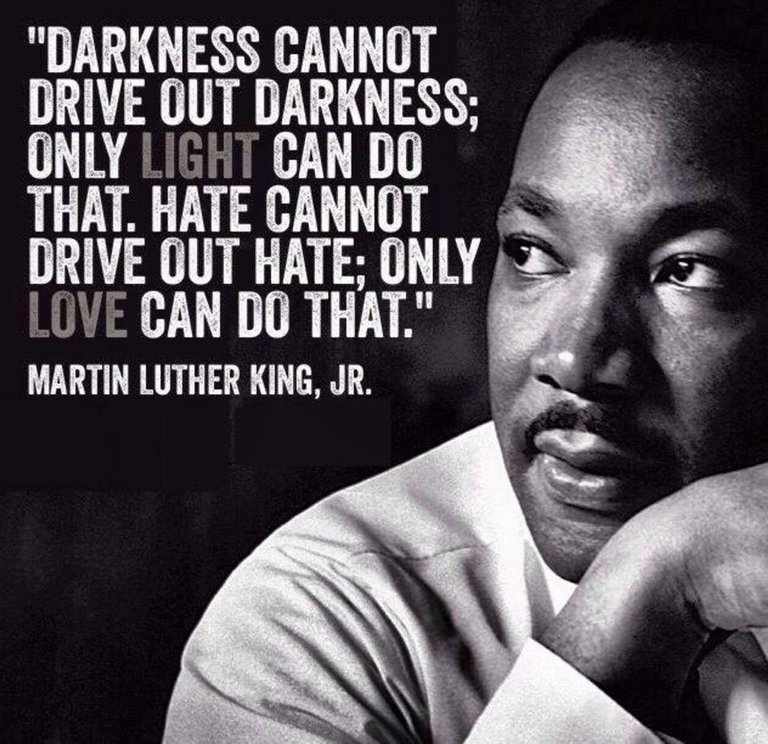
What do MLK Jr.’s wife, MLK Jr.’s Son, James Earl Ray (alleged killer of MLK Jr.), Dr. William F Pepper (the second attorney to represent James Earl Ray), and Judge Joe Brown (the last judge to preside over James Earl Ray’s murder case) all have in common?
Not a single one of them believes that James Earl Ray killed Dr. King.
MLK’s Family
MLK's Family 1999 Press Conference Transcript
MLK's 1999 Trial Transcript
Judge Joe Brown
Dr. William F Pepper & James Earl Ray
James Earl Ray, of course, is the man who pled guilty to shooting Dr King. He immediately recanted this plea and maintained his own innocence for the rest of his life.
This man is seen as innocent by the most important people connected to the case. And yet most Americans, even black Americans, are blissfully unaware of it.
Dr. King’s own family doesn’t buy the official narrative but you do. Stop to think about that for a moment.
Do you think you’ve examined more of the evidence than they have? I doubt it.
Do you think yourself more objective and able to weigh the evidence? Judge Joe Brown would beg to differ.
No, most people believe the official narrative because it is comforting, because they’ve heard it over and over, and because they’ve never been given any reason to doubt it.
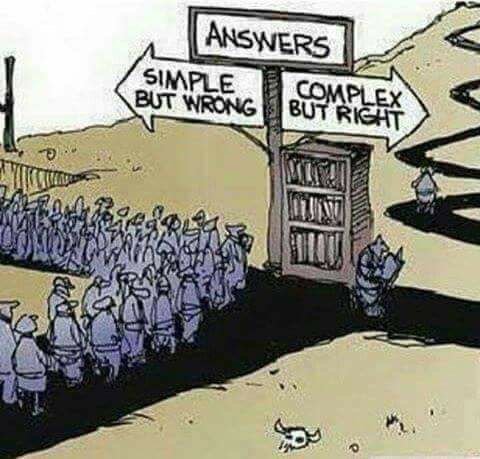
We set aside one day every year to celebrate the man and his legacy and how tragic it was that he was killed so young, but we are never told this crucial piece of information. Not from the mainstream media anyhow. And I definitely didn't learn it in school.
Does that not strike you as weird? Doesn't that seem like a very important fact to omit? That those closest to him dispute who the killer was? That each of them maintain, to this very day, that MLK was assassinated by the government?
It certainly strikes me as fishy that this information has been kept from me. That I was well past thirty years old before I ever even heard the official narrative challenged. And this indoctrination had the desired effect; I brushed it off as fake news.
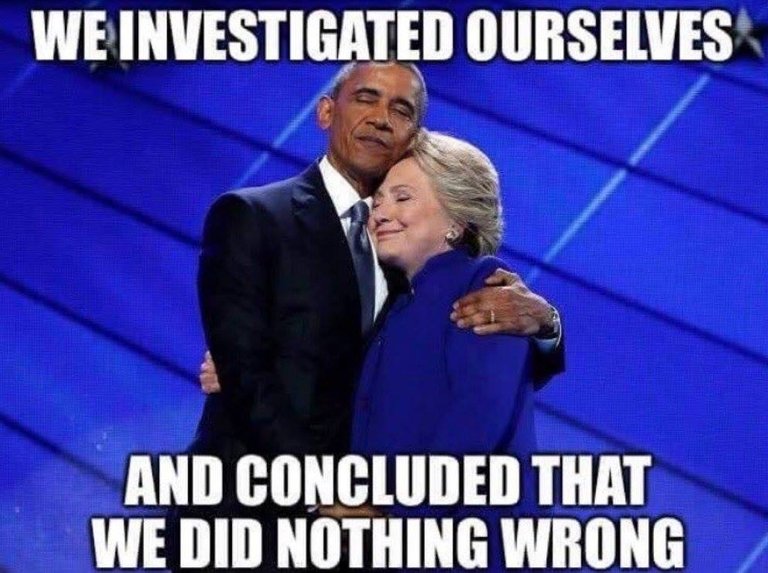
Now I’m not here to convince you with a deep dive into the evidence. If you are interested I encourage you to research into the matter by following the links above.
But if you have any doubt, any inclination that King’s family might be right, that MLK was killed by the government, then I ask you to do this one thing to honor him:
Hear him out.
I encourage you to listen to the very speech which got him killed. The speech he delivered exactly one year before his assassination. It caused him immense personal hardship in the immediate aftermath, and eventually culminated in his murder.
But that is in improper introduction to Dr. King's "Beyond Vietnam" speech. For that fascinating bit of history, I clipped together a highlight reel of quotes from the PBS show on this topic by Tavis Smiley.
Tavis Smiley Reports - “MLK: A Call to Conscience” – Part 1 - August 25, 2011
Tavis Smiley: But at the time, many insisted America was making an important stand against communism, and that to question an ongoing war was tantamount to treason. So when Dr. King told his inner circle that he was going to publicly condemn the war in no uncertain terms, there was immediate blowback. Many of his closest advisers questioned whether or not he realized what he was doing. Dr. King’s friend and ally Harry Belafonte remembers.
Harry Belafonte: I believe very strongly that Dr. King understood with great clarity what it was he was getting into once he cross-pollinated our movement with the efforts of the peace movement and the resistance of the war in Vietnam, he was not just speaking philosophically towards the issues of peace, but he was also speaking very strongly to the issues of American political policy.
Tavis: It was that decision to speak out about war policy that made so many in the civil rights movement angry. Why take on the Vietnam War when the fight for civil rights was still to be won? And most importantly, why incur the wrath of President Lyndon Johnson, a man many considered to be the best civil rights president since Lincoln and a man who had seemingly forged an important alliance with Dr. King?
…
Susannah Heschel: My father was not an absolute pacifist. He knew that there are times when you must go and rescue people, and it may take force of arms. But he also believed that first you have to try as hard as you can with other methods. If I could see the miracle, really, the miracle that Dr. King worked in this country, how he transformed us, can’t it work in other settings? I can’t say that it can’t. How could I?
…
Tavis: It was a speech that asked if fear had turned Americans into bullies.
…
Tavis: It was one of the few speeches that King did not solely write himself, and unlike his sermons, which were often delivered extemporaneously, King read “Beyond Vietnam” from a carefully constructed text.
The text itself actually went through revision after revision as many of his closest aides all took turns writing and rewriting.
Belafonte: I don’t think there was any speech that Dr. King ever gave that was as labored as this one was in his preciseness of thought in what he wanted to impart.
…
Part 2 - Tavis Smiley Reports - “MLK: A Call to Conscience” - August 26, 2011
Tavis: Beyond Vietnam was a long speech, more than 45 minutes. When Dr. King finished, the crowd at Riverside Church erupted in sustained applause. But that support was short-lived.
By morning, the political fallout was intense and far-reaching. The already strained relationship between President Johnson and Dr. King became fractured beyond repair.
Donations to King’s organization, SCLC, began to dry up and the mainstream press denounced him in no uncertain terms, charging that as a civil rights leader he wasn’t qualified to evaluate U.S. foreign policy.
…
Taylor Branch: It united “The New York Times” and “The Washington Post,” a war critic and a war supporter. They both said he’ll never be respected again. Shut up and go back to talking about we shall overcome.
Tavis: “The Washington Post” said this: Many who listen to him with respect will never again accord him the same confidence. He has diminished his usefulness to his cause, to his country and to his people.
“The New York Times” claimed the fusion of the two issues could very well be disastrous for both causes.
But as sharp as those assessments were, they probably did not sting as much as the criticism that came from many of Dr. King’s colleagues within the civil rights movement itself.
Rev. Jesse L. Jackson, Sr.: Dr. King saw the world through a door, not through a keyhole. The civil rights leaders were so much more limited and they attacked him along with the major media and the White House and the Democratic Party by saying that you were taking the attention away from civil rights by focusing on the war in Vietnam. He said the reality is, the war on poverty and money is going to the war in Vietnam.
…
Tavis: You get the sense that they were angered by this Negro getting out of his lane. Foreign policy is not the lane, Dr. King, that we have allowed you or want you to run in, and that comes through pretty clear to me, at least in my reading of it. Did you read the same thing?
Belafonte: With one definition.
Tavis: Okay.
Belafonte: If Dr. King had stepped into the foreign policy issue and said I approve of all that you do, he’d have been exalted as a man of vision who leads his people in truth and he’s married to the best in American political goals.
No, what he did was to do the unthinkable and the undesirable as a Black man, first of all, to reveal that he had the capacity to think and to do analysis and could read history and could speak to global issues with great clarity and he could also take on the establishment and say, “Shame on you.”
…
Tavis: The fallout from “Beyond Vietnam” continued to plague Dr. King in the last year of his life.
Jackson: He had the strength of his faith because he would often go to the trenches and they would not be full. Witnesses would not show up, would not open doors to their churches. The Democratic Party almost en masse turned against him. Blacks who worked for the White House turned again him.
So it was a lonesome journey. But the more he became accustomed to it, he gained strength even in his solitary role because he felt that he was right and ultimately that the right would prevail. And that became his ultimate strength because he said I’d rather live with my conscience than live with the crown. Leaders at their best, he said, cannot follow opinion polls. They must mold opinion.
Tavis: When Dr. King was assassinated on that balcony in Memphis, nearly three-quarters of Americans disapproved of his stance against the Vietnam War. Many within the African American community also criticized King. To young people like those in Newark, King at 38 was already a relic. They thought he’d gone soft. The Black Power movement was coming on. In the last year of his life, this question remains: who was on Martin’s side?
…
Cornell West: Of course, we got to keep in mind that this great truth teller was called the most notorious liar by the FBI.
Tavis: And the most dangerous man in America.
West: That kind of love is dangerous. When you love poor people that much, working people that much, you’re gonna be dangerous to the powers that be.
…
Jackson: I was at the meeting early one Saturday morning. He came in the meeting and said, “I’ve had a migraine headache for about three days and I’ve thought about quitting. Maybe I’ve done as much as I can do in 13 years. We’ve covered the back of the bus, we have public accommodations, we have the right to vote. My Democratic friends, even some of my Morehouse classmates have turned against me. I’ve felt real down, I’ve felt depressed. Maybe I should quit.”
...
Tavis: We decided to conclude our conversation about “Beyond Vietnam” where it began with Dr. Vincent Harding, the primary architect of this important speech and the connection he believes it had to Dr. King’s death one year to the day later.
Vincent Harding: I am convinced that that bullet had something to do with that speech. Over the years, that’s been quite a struggle for me.
…
Tavis: Despite the negative repercussions that followed his “Beyond Vietnam” speech, Dr. King never retreated from his conviction that America had somehow lost her moral compass. In fact, Dr. King had resolved that, come Sunday, April 7, 1968, his sermon topic would be why America may go to hell.
Martin Luther King: “Now let us begin. Now let us rededicate ourselves to the long and bitter, the beautiful struggle for our new world. Shall we say the odds are too great? Shall we tell them the struggle is too hard? Will there be another message of love and hope, of solidarity with their yearnings, of commitment to their cause, whatever the cause? The choice is ours. Though we might have preferred otherwise, we must choose in this crucial moment of human history.”
Tavis: Dr. King’s opposition to the Vietnam War was not the only controversial aspect of the last year of his life. At the time of his death in 1968, King traveled to Memphis to speak on behalf of striking sanitation workers and, more broadly, the growing gap between the rich and the poor in America.
One can only imagine how he would view issues like poverty today in light of the fact that more and more Americans, and children in particular, find themselves among the ranks of this nation’s poor. And as he brilliantly linked war and poverty together in that 1967 speech, he reminded us then, and indeed now, that war is the enemy of the poor.

When MLK gave his “Beyond Vietnam” speech, he knew that it could be career suicide - but he did it anyway. The message was more important than the messenger.
MLK had to speak out against the war in Vietnam. As a minister of the gospel, as a citizen of this nation, he felt that he had the obligation to speak truth to power.

If the government killed one of our own for speaking against their tyranny, then it is for every patriotic American to act in defiance to their wishes.
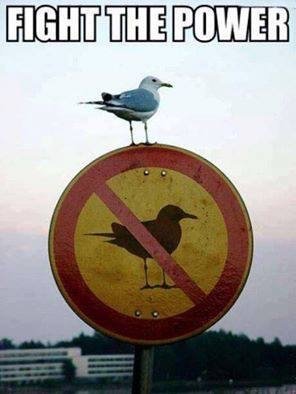
They wanted to silence Dr. King with violence. They wanted to snuff out his message. So lets give his message a megaphone.
It is a truly amazing speech, and is as relevant today as the day he gave it. You will not be disappointed.
It is available in text HERE and in audio HERE.
I personally suggest reading as the audio plays. Some parts are better on paper and some parts are better when heard from the man himself.
The speech is less than an hour long, but that is still longer than most people are prepared to sacrifice. If you are one of those people and only want to read only an excerpt, then please let it be this excerpt:
There is at the outset a very obvious and almost facile connection between the war in Vietnam and the struggle I and others have been waging in America. A few years ago there was a shining moment in that struggle. It seemed as if there was a real promise of hope for the poor, both black and white, through the poverty program. There were experiments, hopes, new beginnings. Then came the buildup in Vietnam, and I watched this program broken and eviscerated as if it were some idle political plaything on a society gone mad on war. And I knew that America would never invest the necessary funds or energies in rehabilitation of its poor so long as adventures like Vietnam continued to draw men and skills and money like some demonic, destructive suction tube. So I was increasingly compelled to see the war as an enemy of the poor and to attack it as such.
Perhaps a more tragic recognition of reality took place when it became clear to me that the war was doing far more than devastating the hopes of the poor at home. It was sending their sons and their brothers and their husbands to fight and to die in extraordinarily high proportions relative to the rest of the population. We were taking the black young men who had been crippled by our society and sending them eight thousand miles away to guarantee liberties in Southeast Asia which they had not found in southwest Georgia and East Harlem. So we have been repeatedly faced with the cruel irony of watching Negro and white boys on TV screens as they kill and die together for a nation that has been unable to seat them together in the same schools. So we watch them in brutal solidarity burning the huts of a poor village, but we realize that they would hardly live on the same block in Chicago. I could not be silent in the face of such cruel manipulation of the poor.
My third reason moves to an even deeper level of awareness, for it grows out of my experience in the ghettos of the North over the last three years, especially the last three summers. As I have walked among the desperate, rejected, and angry young men, I have told them that Molotov cocktails and rifles would not solve their problems. I have tried to offer them my deepest compassion while maintaining my conviction that social change comes most meaningfully through nonviolent action. But they asked, and rightly so, “What about Vietnam?” They asked if our own nation wasn’t using massive doses of violence to solve its problems, to bring about the changes it wanted. Their questions hit home, and I knew that I could never again raise my voice against the violence of the oppressed in the ghettos without having first spoken clearly to the greatest purveyor of violence in the world today: my own government. For the sake of those boys, for the sake of this government, for the sake of the hundreds of thousands trembling under our violence, I cannot be silent.
For those who ask the question, “Aren’t you a civil rights leader?” and thereby mean to exclude me from the movement for peace, I have this further answer. In 1957, when a group of us formed the Southern Christian Leadership Conference, we chose as our motto: “To save the soul of America.” We were convinced that we could not limit our vision to certain rights for black people, but instead affirmed the conviction that America would never be free or saved from itself until the descendants of its slaves were loosed completely from the shackles they still wear. In a way we were agreeing with Langston Hughes, that black bard from Harlem, who had written earlier:
O, yes, I say it plain,
America never was America to me,
And yet I swear this oath—
America will be!
Now it should be incandescently clear that no one who has any concern for the integrity and life of America today can ignore the present war. If America’s soul becomes totally poisoned, part of the autopsy must read “Vietnam.”
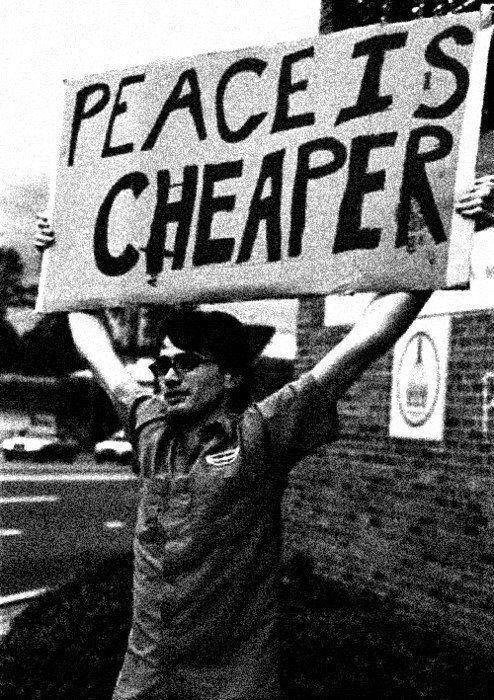
Dr. King's vision for American foreign policy was not some crackpot idea. It is the recipe for peace. It is absolutely necessary for our survival. And two General-turned-Presidents agree with him.
Both Presidents had led troops into battle as our nation's top general and went on to serve 8 years as President. Both of them, amazingly, made war a focal point of their retirement speech - their farewell address.
When Dwight D. Eisenhower warned us of the Military Industrial complex and its desire to keep America at constant war, he was echoing the sentiments of George Washington himself. What Dr. King advocates in this speech, the removal of Americans from foreign conflicts, is not some radical idea. It is the recipe for peace and prosperity.

Non-interventionism is not pacifism. Pacifism chooses never to fight. Non-interventionists have a very high standard for when to fight. And the type of non-intervention embraced by these intellectual giants is not some pansy philosophy. It is hardcore.
It goes by many names including "Peace through Strength", "Deterrence Theory", and "Armed Neutrality", but my favorite explanation of the idea is an old African proverb: "Speak softly, and carry a big stick, and you will go far."
It is the belief that we can have the strongest military in the world, and yet also exercise the restraint to only use it in defense.

And Americans have done a good job with the big stick part. We do carry a big stick. We have the best military in the world.
But if we could only get the "speak softly" part down, then we could live at peace with all nations.
This is our inheritance, given to us from our founding father George Washington. He outlines exactly how this can be accomplished in his Farewell Address.
This permanent peace could have been ours, but instead we have been at war for 222 out of our 239 years as a nation. We have been robbed, ladies and gentlemen of an inheritance of peace. Powerful men want to keep us at war for unethical reasons. They are deceiving us to feed the war machine. And when Dr. King pointed this out - our nation turned on him.

We do not have to continue on this path. We can still choose to embrace a policy of strength and peace. What Washington penned in 1796 was put into action just 20 years later by Switzerland in 1815.
Since that time, Switzerland has not participated in a foreign war nor have they been intentionally attacked. Ironically, America was the nation that unintentionally attacked this famously neutral nation. Switzerland has had 200 years with NO WAR. And one has to wonder if that could have been us.
I often wonder if American had followed the advice of Washington and Eisenhower and King if perhaps we could have avoided decades of warfare and millions dead. I tremble to think that America has refused to listen to her prophets and is now suffering the consequences.
And while some may think we are too far gone, I want to remind you of the old proverb,
"The best time to plant a tree is twenty years ago. The second best time to plant a tree is now."
Stay tuned for future posts where we'll discuss Washington's suggestions specifically and ask if they can really work for us in modern day America.
click here!This post received a 2.9% upvote from @randowhale thanks to @pushing.truth! For more information,
true!
MLK jr was only killed by the deep state after he was going to do a poor peoples march on Washington to secure our economic rights. There is nothing more the oligarchy fear then the committed solidarity of the working class.
I think there is a lot of validity to this. It's certainly the case that many people see this march as the real reason he was killed. The timing sure seems to point to Beyond Vietnam, but I don't see any reason why it couldn't be both.
Hi @pushing.truth
This gem of a post was discovered by the OCD Team!
Reply to this comment if you accept, and are willing to let us share your gem of a post! By accepting this, you have a chance to receive extra rewards and one of your photos in this article may be used on our compilation post!
You can follow @ocd – learn more about the project and see other Gems! We strive for transparency.
This is a great post! I love you how go into detail about how you did the drawing! Very talented... keep up the great work!
Reply to this comment and I will nominate your post to the OCD Team! Thanks!
Thanks @ocd! I'm glad you liked it. And feel free to share and use the photos.
You've been UpVoted via the UpVote Experiment 002 Bot. Depending on my VP & the price of STEEM you should get a $.01-$.03 for your trouble.
Read more about this experiment here.
Thank You - @blueorgy
Thanks @blueorgy for the upvote.